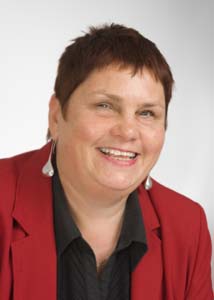Sisters of Frida is a member of ROFA (Reclaiming Our Futures Alliance). In times of austerity, we see disabled and older women are likely to be coerced into assisted suicide from different pressures.
If the Assisted Dying Bill is passed, some Disabled and terminally ill peopleâs lives will be ended without their consent, through mistakes, subtle pressure and abuse. No safeguards have ever been enacted or proposed that can prevent this outcome â an outcome which can never be undone.
Read the story of Maud in the Guardian
If we structure society in such a way that many people have desperate, miserable lives, what sort of choice is it when people choose to kill themselves?
Maud lives round the corner from me in south London. She is 90 and on her own. She remembers a time when everyone knew everyone else, and when there was genuine community solidarity. Nowadays people come and go, she says, and young people canât be bothered with the elderly. She is often lonely. âEven the doctor came round to see me and asked me if I wanted to commit suicide,â she says.
(photo of a NotDead Yet protest by Eleanor )
From Inclusion London
With two Assisted Dying bills currently before parliament, it is really important that Deaf and Disabled people and our organisations speak out loudly against the legalisation of assisted suicide and raise awareness of the threat this poses to disability equality.
Our message is that we want support to live not die. At a time when essential support is being taken away from us, when the challenges we face are exponentially growing as a direct result of adverse government policy, it is more dangerous than ever to introduce legislation which encourages suicide as a solution to the barriers Disabled people face.
We say: give Disabled people a right to independent living before a right to suicide.
Below are different ways that Disabled campaigners and our supporters can take action and get involved. We realise that not everyone has the time to do everything but anything you are able to contribute to the campaign would be valued.
1) Sign up the Reclaiming Our Futures statement. Itâs quick and easy to do: just email your name to ellen.clifford@inclusionlondon.org.uk with âAS statementâ in the subject line. We are asking organisations, campaigns and individuals to sign up before the end of August. Itâs really important we can show there is wide support for the case against legalisation.
Reclaiming Our Futures Alliance Statement
We are opposed to legalisation of assisted suicide. It will remove equality and choice from disabled people and further contribute to our oppression. If the Assisted Dying Bill is passed, some Disabled and terminally ill peopleâs lives will be ended without their consent, through mistakes, subtle pressure and abuse. No safeguards have ever been enacted or proposed that can prevent this outcome â an outcome which can never be undone.
[Reclaiming Our Futures or ROFA is a network of grassroots Disabled people led campaigns and organisations across England. For more information see: http://www.rofa.org.uk/]





